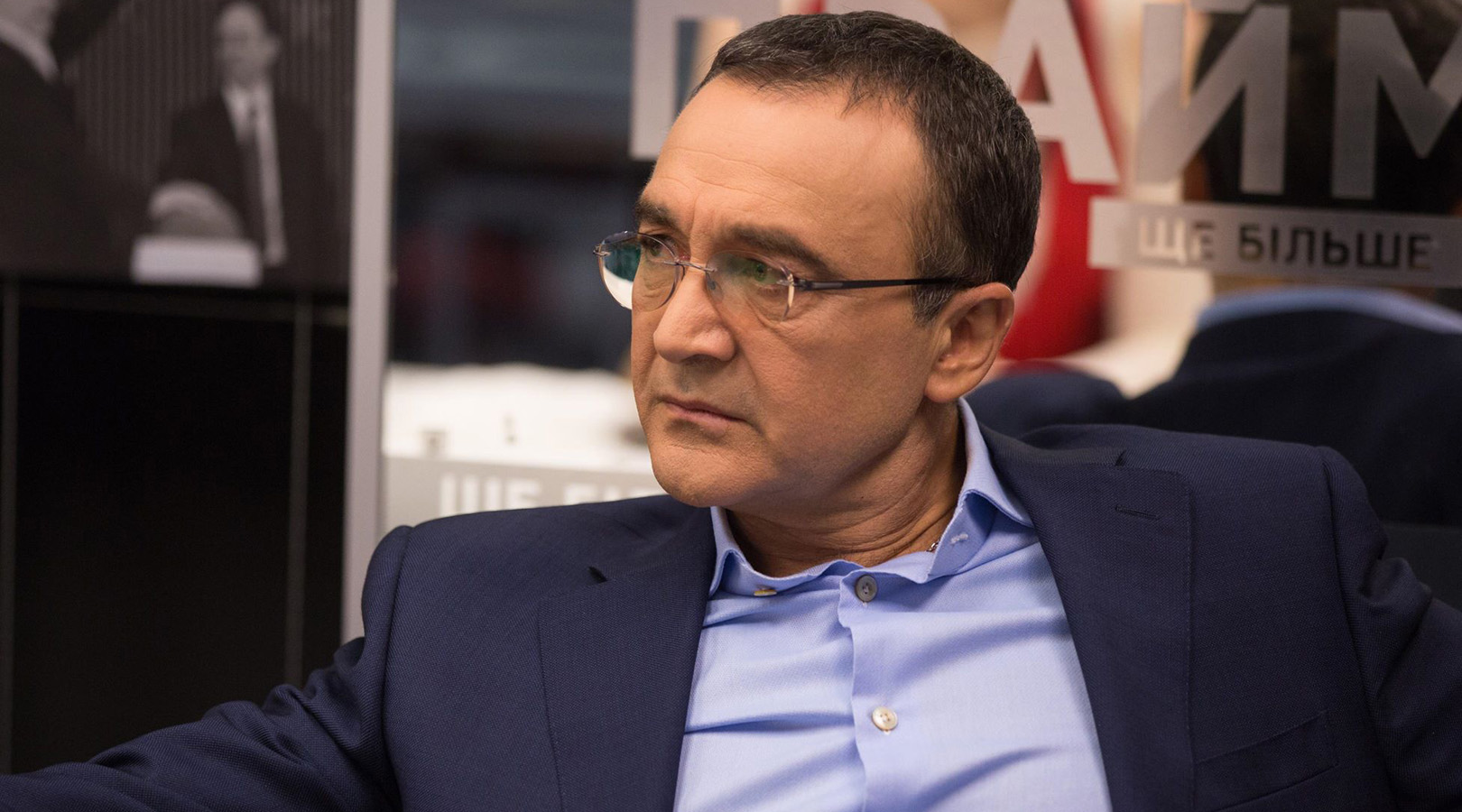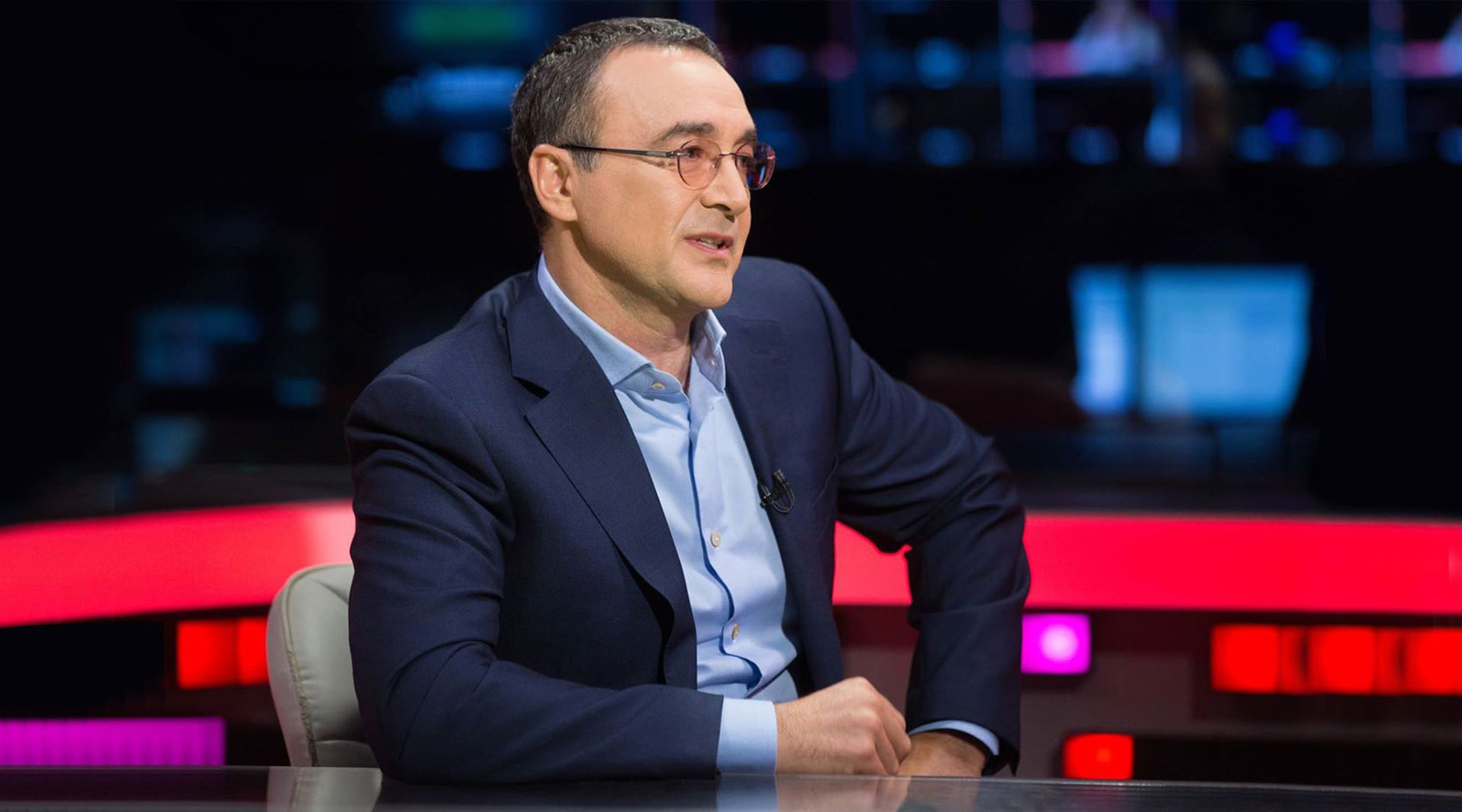Igor Nikonov is a big Ukrainian businessman, a person with extensive experience in business and management. He owns and manages development business, K.A.N. Development, a company that implemented a number of large-scale projects of residential and office property, primarily in the Ukrainian capital. In 2014-2015, Nikonov served as first deputy head of Kyiv City State Administration and still remains an advisor to Vitali Klitschko. All of this also determines our interest in what Igor Nikonov thinks about Ukraine's prospects, primarily in the economic sphere.
Q: Igor, some time ago you returned to Ukraine and now keep growing your business in this country, despite the seemingly complicated situation here. Is this patriotism or an economically grounded risk?
A: As a matter of fact, when you know the rules to play by, business performance in Ukraine can be much higher than that in many other countries. Notwithstanding the forecasts of international auditors who tend to base their assessment of the investment climate on conventional criteria, ROI on businesses in Ukraine can reach as high as 30-40%. I call today’s Ukraine an emerging Klondike, as it is currently at the brink of massive reforms. Whoever is able to quickly get the hang of this and take the right steps, will make a scoop. I have lived through several crises in Ukraine and have a deep understanding of this market, so I can confidently say there is great potential in all industries.
Q: What does the government do to attract foreign investors, do they enjoy any preferences?
A: To tell you the truth, I envy foreign investors, because both the regulatory system and law enforcement agencies in Ukraine seem to treat them with deference. They need to make little effort to get all the approvals and start a business. Certainly, they have to know the ins and outs of business operations and the local mentality. However, the government’s carte blanche and support of diplomatic institutions who actively lobby their investors’ interests in Ukraine will ultimately create the right environment. Currently, Ukraine’s biggest problem is lack of long-term money and whoever brings it to the table and invests reasonably, will be in profit. For example, speaking of the construction industry, given the present situation with virtually zero bank loans, a property developer with long-term investment can earn twice, the second time by lending money to the buyers of their properties.
Q: When talking about massive reforms, which specific government initiatives are you referring to?
A: One of the most important legislative resolutions will be adopted soon. I am talking about the Law on Industrial Parks, which introduces a framework for creating free economic zones. Tax preferences for manufacturers and favorable terms of importing plant machinery will create huge potential for processing industries, such as agriculture, wood processing industry and metallurgy. A further incentive for domestic production will be offered by the taxation of exported raw materials, which is also on the government’s nearest agenda. But even if we disregard these legislative initiatives, still over the past year or so Ukraine has seen the opening of over a hundred new plants, which speaks for itself. Overall, Ukraine is adopting fair play practices, and the more modern, wholesome players it welcomes, the faster the system will get rid of relics of the past.

Q: EU countries are taking their production facilities abroad, moving them to the newly industrialized countries of Asia. Do you see Ukraine as an industrial giant?
A: I’ve always believed in industrial parks and reckoned them an absolutely obvious way out of an economic crisis. Many countries have been down this path in the past, including the USA, the UK, Germany, China, Turkey and our closest neighbors Belarus and Russia. Ukraine can also streamline its production both for meeting the domestic demand and for exporting goods. In my opinion, the environment for boosting production in Ukraine is by no means inferior to that in China; the country is rich in natural resources and has a competitive geographic location, especially in respect to the European and the Near East markets, in terms of transportation, infrastructure and logistics. Besides, our workforce and specialists have better qualifications and education. Climate, mentality, culture and religious beliefs also play an important role. Many Ukrainians, especially young people, speak English, which gives them an edge.
Q: So you think that Ukraine’s economy, which has been undermined by the war and other crisis factors, can be boosted through active industrialization?
A: Yes, I believe this is our way. For example, between 2002 and 2017, Turkey built over 200 industrial parks, which gave a 3.7 times increase in the country’s GDP and raised about $100bn for their economy. All of this was thanks to industrial parks alone. In Czech Republic, industrial parks attract $10,700 of investment per capita. In Poland this figure is $5,600, and in Ukraine currently just $1,500. This is where things can be improved. As for the military conflict in Eastern Ukraine, from my perspective, it has provided an additional spur, I would say, an adrenalin injection for our society: the result is a higher individual and social responsibility, stricter control over public spending, reforms to law enforcement authorities. The patriotic spirit is on the rise.
Q: You are essentially proposing to embrace the import substitution policy.
A: I am indeed. We have a huge domestic market, yet the volume of imports is incredibly high. At the same time, 70% of our raw materials are exported. What conclusions can we make? We need to actively seek to process raw materials and substitute them with our own goods. This is particularly facilitated by the statutory conditions that are getting more and more favorable. Instead of exporting grain, we need to produce flour or, better yet, pasta and use it to substitute relevant imports. We have a great potential for modern, high-tech production and a huge number of niches waiting to be filled. I see opportunities for small and medium businesses whose growth must become the country’s priority.

Q: So you think the chance for survival of the economy lies with entrepreneurs? How fast is entrepreneurship growing in Ukraine?
A: There is an opinion that the stronger the middle class and small businesses, the more diversified and robust is the country’s economy. The lion’s share of Ukraine’s business used to be consolidated in the hands of few oligarchs, but they are gradually losing their power, their production volumes shrinking. Large enterprises, often outdated, find it harder to respond to the ever-changing business environment. In our country, large business is generally related to raw materials. This presents a huge potential for medium business – its time has come. Ukrainians are ready to establish production facilities and create jobs. Moreover, because in Ukraine income from savings is taxed at a high rate, people put their money in real estate and investment. For example, my property development projects are aimed to maximize the synergy of residential property and entrepreneurship, and I am amazed at how actively residents open their bakeries, workshops, stores, confectioneries, etc.
Q: Property development is your primary business activity, isn’t it? Does your interest towards manufacturing and investment indicate your intention to switch to another activity?
A: Definitely not. However, the wellbeing of my business does depend on the sum on an average check, on the average consumption expenditure per capita. Real estate is an indicator of the public purchasing power; the higher the consumption level, the better things go with property development. The higher the country’s commercial dynamics, the higher is the demand for commercial property. And I can definitely see an upward trend here: construction companies in Kyiv used to build and sell around 1.2 mn sq.m. of properties annually, whereas now this figure has reached 2 mn. The number of vacant spaces in business center in million-plus cities is virtually zero. On the other hand, I do mean to facilitate the Ukrainian manufacture. My companies employ more than 10,000 people, and we build residential property in whole blocks. We always prefer domestically made materials to imported ones. The only reason we are now using 20% of imported products for construction purposes is that the Ukrainian market lacks alternatives.
Q: What other incentives and areas for investment in Ukraine can you suggest?
A: I should reiterate that one of our principal resources is raw materials, both agricultural produce and mineral resources. Ukraine’s location is among the best in Europe, we have always been conveniently placed in the convergence of trade and transit routes between the East and the West. Ukrainians are good professionals – they are qualified and disciplined. I will speak from my own experience: Ukrainian construction specialists are second to no one. Among the promising industries, apart from raw material processing and high-tech energy-efficient production, I can mention healthcare and pharmaceuticals. There is also significant demand for education in Ukraine. Let’s not forget agriculture as well. Ukraine has currently imposed a moratorium on the sales of agricultural land, and a hectare of land costs $500. In the neighboring Poland, this price can be as high as $10,000 per hectare. Ukraine’s land bank contains 41 mn hectares; if we put two and two together, we will arrive at $410 bn of unused agricultural land market potential in the country. In addition to that, thousands of public companies are waiting to be privatized and invested into. According to my own data, the government will shortly disclose an extended list of these companies available for privatization.
Q: Among the Western countries, there is a certain stereotype about Ukraine, that local business owners join the parliament to lobby their businesses. Are you involved in the political life in any way?
A: I believe that business has nothing to do in politics: everyone must do what they are best fit for. Yes, lobbyism used to be an issue, but today it is totally unreasonable. On the other hand, if a politician owns a business, they will be informationally massacred by the media who will be upon them, watching each their step. On the other hand, if you are seriously into politics, you have no time to take care of your business. I am sure that during the next election, the percentage of businessmen participating as candidates will be minimal.
Ivan Vynohradov, Kyiv
Photo: Rostyslav Hordon, K.A.N. Development
